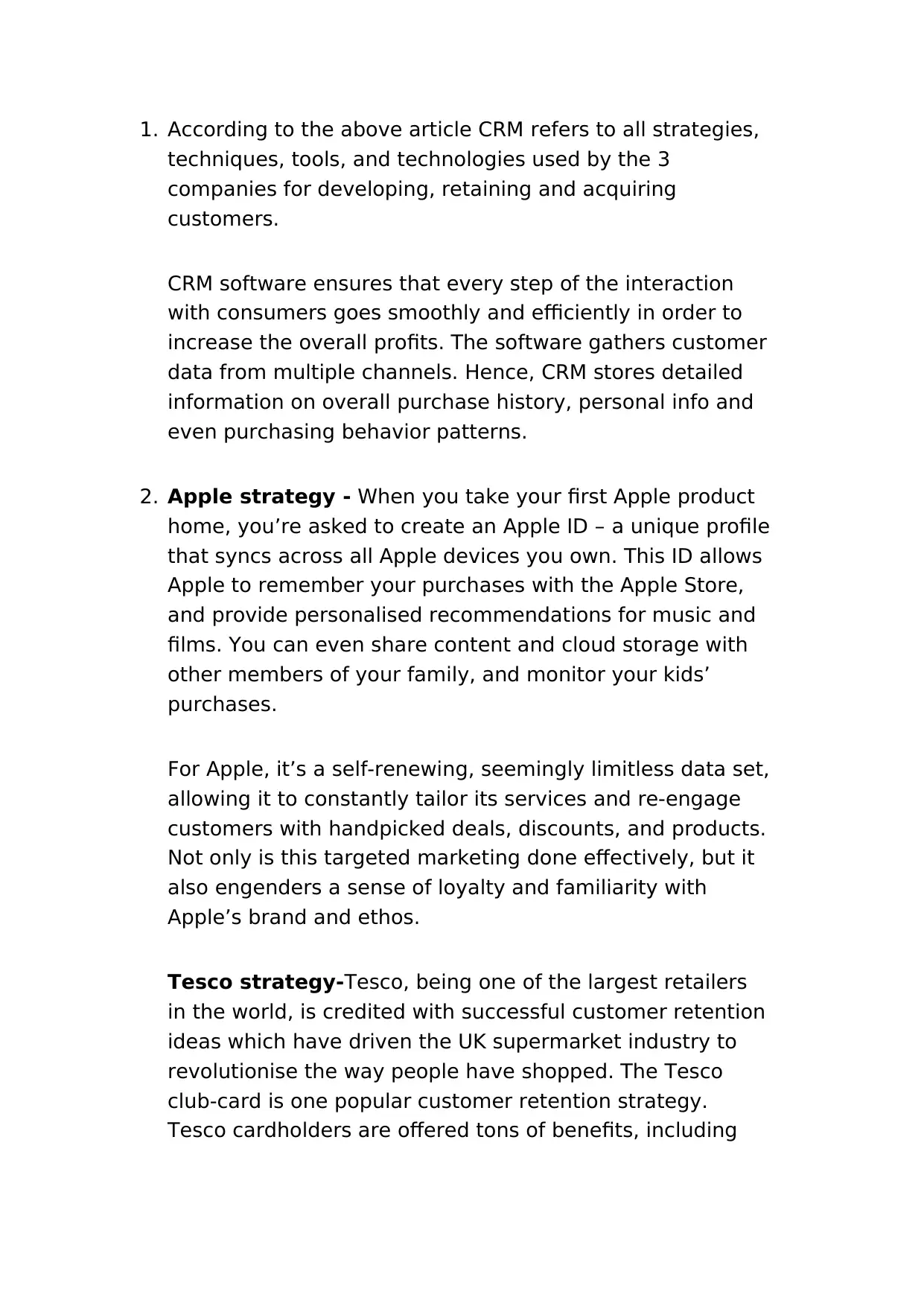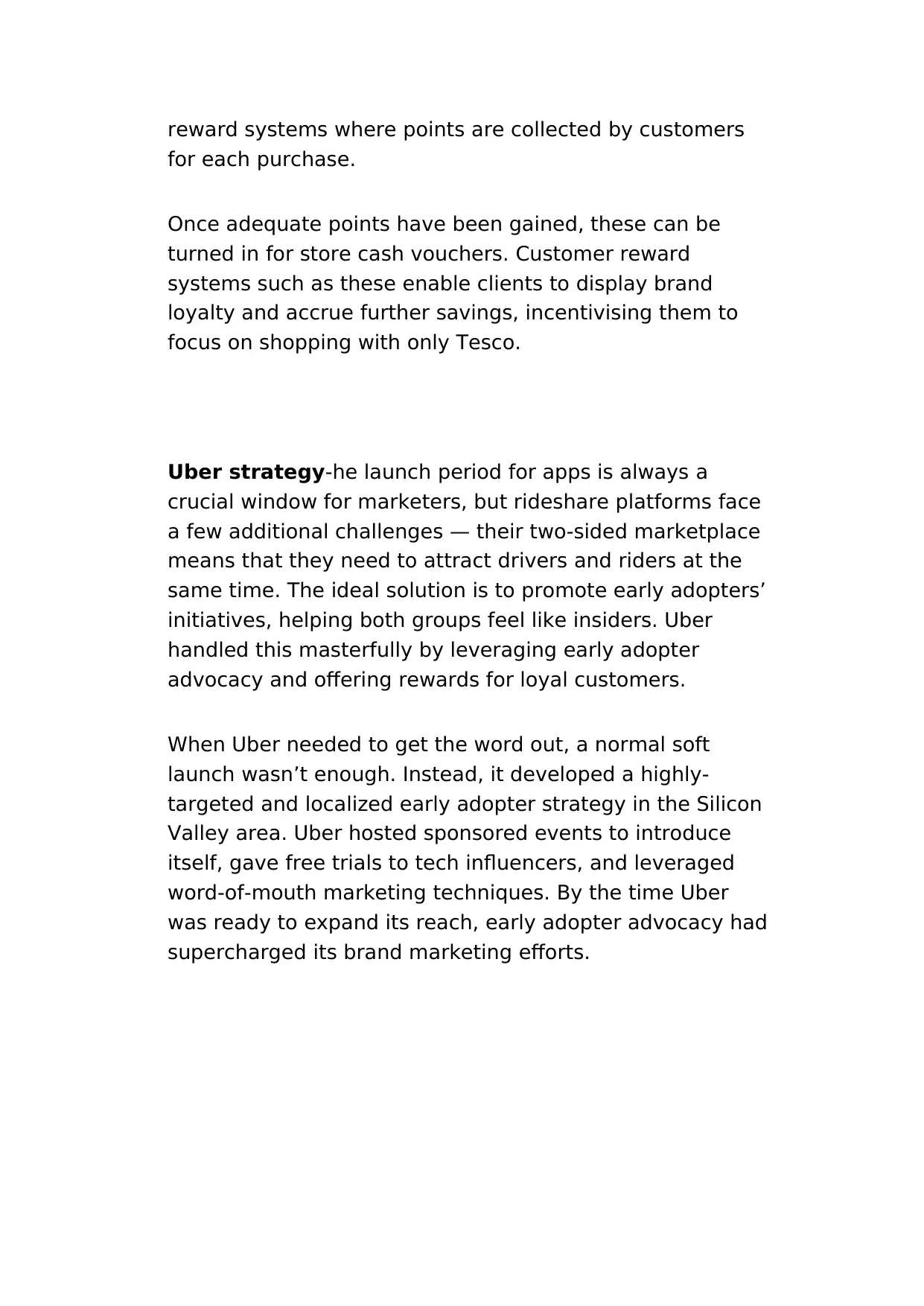Case Study: CRM Strategies of Apple, Tesco, and Uber
VerifiedAdded on 2021/05/26
|2
|480
|42
Report
AI Summary
This report delves into the Customer Relationship Management (CRM) strategies employed by Apple, Tesco, and Uber. It examines how each company utilizes CRM to enhance customer interactions and drive business success. The analysis covers Apple's approach to personalized recommendations through its Apple ID system, Tesco's use of loyalty programs like the Clubcard to incentivize customer retention, and Uber's strategies to engage early adopters and build a strong brand presence. The report highlights the benefits of targeted marketing, customer rewards, and leveraging early adopter advocacy. By analyzing these case studies, the report provides insights into effective CRM practices and their impact on customer loyalty and business growth. The report also explores how these companies gather and utilize customer data to refine their services and maintain a competitive edge in the market.
1 out of 2







![[object Object]](/_next/static/media/star-bottom.7253800d.svg)